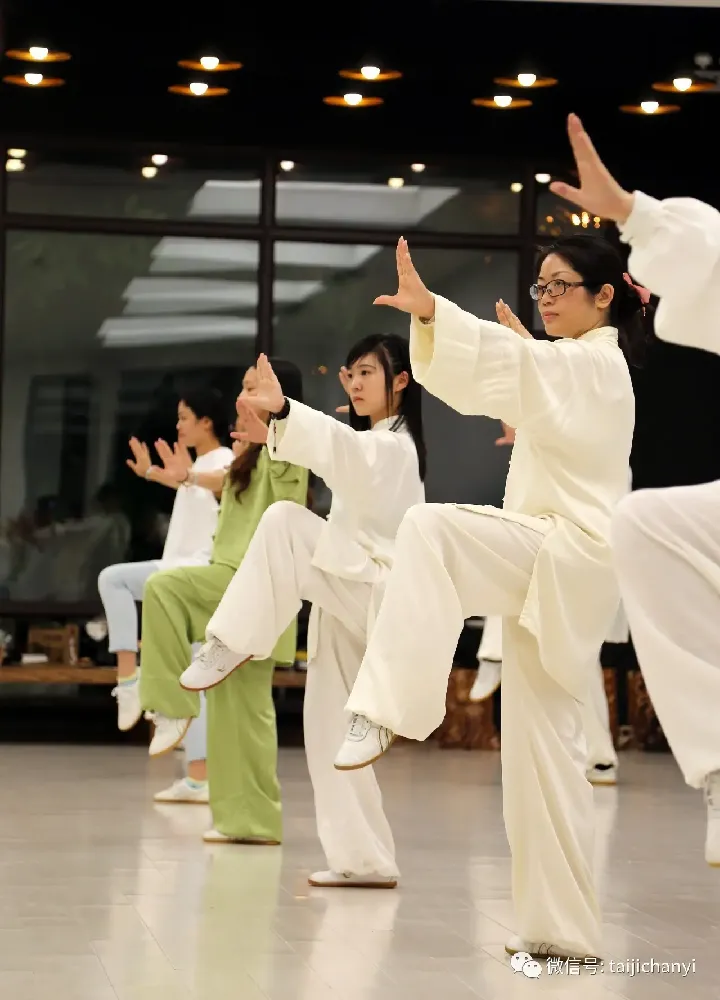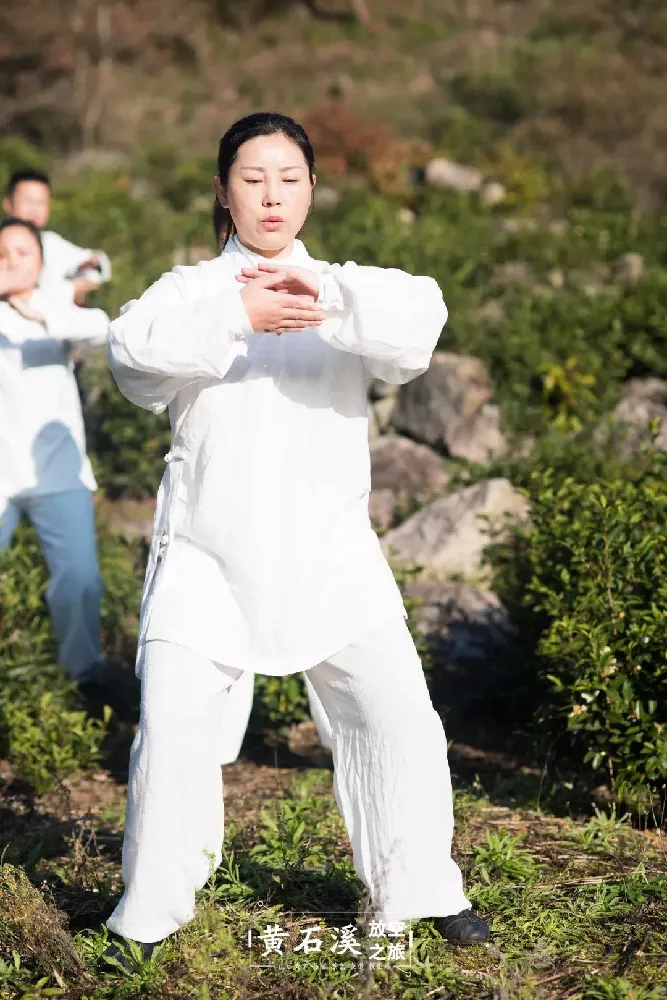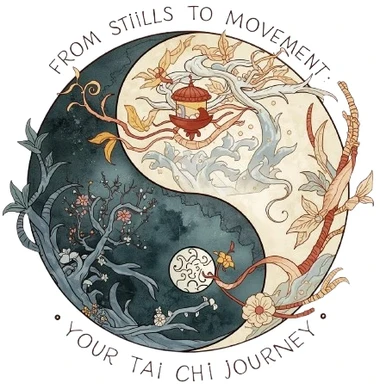Tai Chi, often described as "meditation in motion," is an ancient Chinese martial art that has evolved into a beloved practice for health and wellness worldwide.
With its slow, flowing movements and focus on breath and mindfulness, it's accessible to people of all ages and fitness levels.
But beyond its graceful exterior, what does the science say? We've delved into the research to bring you 20 facts about the proven benefits of Tai Chi.

20 Evidence-Based Facts About Tai Chi
1. It's More Than Just Movement.
Tai Chi is a mind-body practice that combines a series of gentle physical postures, a meditative state of mind, and controlled breathing. It's a holistic exercise for both the body and the spirit.
2. A Powerful Tool for Fall Prevention.
For older adults, Tai Chi is a standout for improving balance and preventing falls. High-certainty evidence shows it can reduce the number of people who experience falls by 20%.
3. Beneficial for Parkinson's Disease.
Studies show that practicing Tai Chi for 60 minutes, 2-3 times per week, can significantly reduce falls and improve balance in individuals with Parkinson's disease, often outperforming stretching or resistance training.
4. It Can Help Manage Knee and Hip Osteoarthritis.
The American College of Rheumatology and the Arthritis Foundation strongly recommend Tai Chi for managing both knee and hip osteoarthritis. It's proven to improve pain, stiffness, and physical function.
5. May Ease Lower Back Pain.
If you suffer from chronic low-back pain, Tai Chi could be a helpful complementary approach. Research indicates it may reduce pain and improve function.
6. Offers Relief for Fibromyalgia Symptoms.
A review of multiple studies found that Tai Chi helps reduce pain, improve sleep quality, relieve fatigue, reduce depression, and increase the overall quality of life for people with fibromyalgia.
7. Supports Lung Health in COPD.
For those with Chronic Obstructive Pulmonary Disease (COPD), Tai Chi can help improve exercise capacity, lung function, and quality of life, sometimes even outperforming standard breathing and walking exercises.
8. Helps Regulate Blood Sugar in Type 2 Diabetes.
Research shows Tai Chi is effective at improving levels of fasting blood glucose and hemoglobin A1c (HbA1c) in people with type 2 diabetes. Longer practice durations lead to better results.
9. Can Contribute to Lowering Blood Pressure.
Some studies suggest that Tai Chi may be better at lowering systolic and diastolic blood pressure than health education, other exercises, or even antihypertensive drugs, though more research is needed.
10. Boosts Psychological Well-Being in Heart Patients.
For adults aged 60+ with cardiovascular disease, Tai Chi has been shown to be better than usual care or other exercises (like walking) for improving quality of life and mental well-being, including reducing depression.
11. It's a Brain Booster for Mild Cognitive Impairment.
Exciting research shows that "cognitively enhanced" Tai Chi—which interweaves movement with mental challenges—can significantly improve cognition (memory, attention, etc.) in older adults with mild cognitive impairment, with benefits lasting for months.
12. Improves Quality of Life for Older Adults.
Even for older adults with various chronic conditions, Tai Chi has a small but positive effect on improving quality of life and reducing depressive symptoms.
13. Shows Promise for Cancer-Related Symptoms.
While more research is needed, Tai Chi appears promising for improving cancer-related fatigue, sleep difficulty, depression, and overall quality of life. For breast cancer patients, it has been shown to significantly improve quality of life at 3 months.
14. A Valuable Practice During the COVID-19 Pandemic.
Studies conducted during the pandemic found that Tai Chi is an effective intervention that can be practiced safely with distancing to improve the psychoemotional state, cognition, and motor skills in older adults, counteracting the negative effects of lockdowns.
15. Likely Safe and Beneficial During Pregnancy.
While no studies have looked at Tai Chi alone during pregnancy, combined mind-body programs (like yoga and Tai Chi) have been shown to reduce depression and anxiety. Physical activity like Tai Chi is generally considered safe during pregnancy with appropriate precautions and after consulting a healthcare provider.
16. It Is Generally Very Safe.
A large review of studies found that Tai Chi is a low-risk activity. The frequency of adverse events was similar to that of people doing other exercises or no exercise. Most reported issues were minor, like muscle aches.
17. Instructor Certification Is Not Standardized.
It's important to know that Tai Chi instruction is not regulated by the government. There is no national certification standard. Various organizations offer training with different criteria, so it's essential to ask about an instructor's training and experience.
18. It's Not a Replacement for Medical Care.
This is a crucial point: Do not use Tai Chi to postpone seeing a healthcare provider about a medical problem. It is a complementary practice, not a substitute for professional medical diagnosis and treatment.
19. The "Dose" Matters.
Research suggests that consistent practice is key. Most studies showing benefits involved sessions of 30-60 minutes, performed 2-3 times per week for periods of 8-12 weeks or more.
20. It's a Practice for Life.
The greatest benefit of Tai Chi often comes from making it a consistent part of your lifestyle. Its adaptability and low-impact nature make it a practice you can continue and enjoy for decades.

Getting Started with Tai Chi
Ready to give it a try? Here are a few tips:
Consult Your Doctor: Especially if you have any pre-existing health conditions.
Find a Qualified Instructor: Look for an experienced teacher with good references. Don't be shy about asking about their training background.
Listen to Your Body: Tai Chi should not cause pain. Move gently within your limits.
Be Patient: The benefits accumulate over time. Focus on the process of learning and moving, not just the end goal.
Have you experienced the benefits of Tai Chi? Share your story in the comments below!
Sources & Further Reading:
This article is based on a comprehensive review of scientific evidence, primarily from the National Center for Complementary and Integrative Health (NCCIH). For the detailed research summaries, you can read their original article here: Tai Chi: What You Need To Know.
Always consult with a healthcare professional before starting any new exercise regimen.
Frequently Asked Questions About Tai Chi
I'm not flexible or in great shape. Can I still do Tai Chi?
Absolutely! Tai Chi is renowned for its accessibility. It is a low-impact, gentle exercise that emphasizes moving within your own range of motion. It is perfectly suited for beginners, older adults, and those with chronic health conditions. It's a tool to improve your fitness and flexibility, not a test of it.
How is Tai Chi different from yoga?
While both are mind-body practices, they have different focuses. Tai Chi involves a continuous series of slow, flowing movements (often called a "form") that are performed while standing and moving. It emphasizes weight shifting, balance, and coordinated motion. Yoga typically involves holding static postures (asanas) and focuses more on flexibility and strength. Both are excellent; the choice is a matter of personal preference.
How long does it take to see the benefits of Tai Chi?
Some benefits, like reduced stress and improved relaxation, can be felt almost immediately after a session. For more significant physical benefits, such as improved balance, pain reduction, or increased strength, most research studies show noticeable improvements after 8-12 weeks of consistent practice (e.g., 2-3 times per week).
Do I need a special instructor or certification?
Since Tai Chi instruction is not government-regulated, it's important to be proactive. Look for an instructor with substantial experience and a teaching style you enjoy. Ask about their training lineage, how long they've been teaching, and if they have experience working with people with your specific health goals (e.g., arthritis, balance issues). A good reputation and positive student testimonials are excellent indicators.
Is Tai Chi safe if I have a health condition?
Tai Chi is generally very safe for people with various health conditions, and research shows it can be particularly beneficial. However, it is crucial to consult your doctor or healthcare provider before starting any new exercise program. Discuss your interest in Tai Chi with them, and once you begin, always listen to your body and inform your instructor of any limitations.
Can I learn Tai Chi from a video or online class?
Yes, online classes and videos can be a great way to get started, especially for learning basic principles and movements. However, for optimal learning and correction of your form, in-person instruction is highly recommended, at least initially. A teacher can provide personalized feedback to ensure you are performing the movements safely and effectively.
